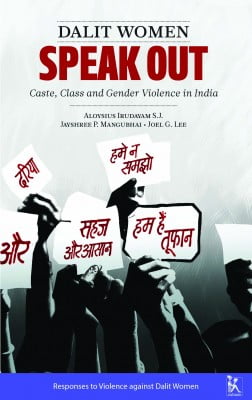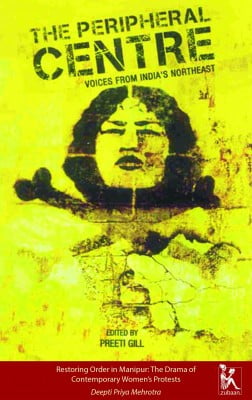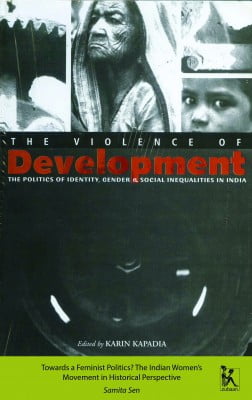No products in the cart.
Return To Shop Our e-Essays project is now LIVE!
Our e-Essays project is now LIVE!
The e-Essays project is a new initiative from Zubaan, an effort to make feminist knowledge and academic research more easily accessible!
For nearly fifteen years, Zubaan has been publishing quality content in gender-related fields. With feedback from our readers, we realise that it’s not always easy for our community — often scholars and researchers — to purchase anthologies, especially when they might need only one chapter or essay from a volume. Recognising this, we’re making individual essays available in e-formats for a reasonable fee.
During the initial months of this pilot programme, on the 1st, 11th and 21st of every month a collection of three essays will be delivered to subscribers’ inboxes, curated to cover disciplines and diversity within our academic anthologies. Each email adds to the bank of available essays, which can be purchased here, and each month, a new essay is available for free with any other purchase.
To be added to the mailing list, subscribe here!
We opened our offering of the e-Essays with a focus on Indian women’s movements. A mapping of history shows the resilience and adaptability of different forms of patriarchies, whether in the functioning of the colonial state, or in that of the more modern, independent Indian state. How have women’s movements and women’s activism confronted such entrenched patriarchies, what strategies have they brought to their activism to fight for change? How, further, has the movement – if indeed there is only one – addressed the complicated issues of caste contestations and identity-based challenges to the nation-state? Covering a period from the time of the Peshwai in the eighteenth century to the present day, this week’s essays highlight the challenges and strengths of the women’s movement in India.
1) Law, Colonial State and Gender by Uma Chakravarti, from Rewriting History: The Life and Times of Pandita Ramabai, 1998.
 Uma Chakravarti’s essay counters the claim that in the pre-colonial period, a ‘fixed’ Hindu law didn’t exist because of multiple caste laws, by arguing instead that even those separate caste laws were bound by a broader rational framework, enforced as such by the Peshwai. Chakravarti analyses the three legal issues of widow remarriage, conjugality and the age of consent to explore how the colonial laws affected women; the relationship between the caste panchayat and the larger legal culture of the second half of the nineteenth century; and whether the textual law was more or less repressive than customary law. 87 pp. Read More.
Uma Chakravarti’s essay counters the claim that in the pre-colonial period, a ‘fixed’ Hindu law didn’t exist because of multiple caste laws, by arguing instead that even those separate caste laws were bound by a broader rational framework, enforced as such by the Peshwai. Chakravarti analyses the three legal issues of widow remarriage, conjugality and the age of consent to explore how the colonial laws affected women; the relationship between the caste panchayat and the larger legal culture of the second half of the nineteenth century; and whether the textual law was more or less repressive than customary law. 87 pp. Read More.
₹95.00
Uma Chakravarti is a feminist historian who taught at Miranda House, Delhi University. She writes on Buddhism, early Indian history, the 19th century and on contemporary issues.
2) ‘Responses to Violence against Dalit Women’ by Aloysius Irudayam S J, Jayshree P Mangubhai & Joel G Lee in Dalit Women Speak Out: Caste, Class and Gender Violence in India, 2011.
 A qualitative as well as quantitative ethnography of 500 Dalit women who had been subjected to verbal, sexual and physical violence by men of the dominant castes, this essay starts as a narrative of individual Dalit women and moves towards an analysis of the reasons for the kinds of responses these women received when they tried to seek justice. The essence of the essay’s argument is that despite the existence of adequate legal measures, Dalit women still face insurmountable obstacles while getting those measures implemented, assuming of course that they know that what has been perpetrated against them is legally actionable. 55pp. Read More.
A qualitative as well as quantitative ethnography of 500 Dalit women who had been subjected to verbal, sexual and physical violence by men of the dominant castes, this essay starts as a narrative of individual Dalit women and moves towards an analysis of the reasons for the kinds of responses these women received when they tried to seek justice. The essence of the essay’s argument is that despite the existence of adequate legal measures, Dalit women still face insurmountable obstacles while getting those measures implemented, assuming of course that they know that what has been perpetrated against them is legally actionable. 55pp. Read More.
₹70.00
Aloysius Irudayam S. J. is currently the Program Director for Advocacy Research and Human Rights Education at the Institute of Development Education, Action and Studies (IDEAS), located in Madurai, Tamil Nadu.
Jayshree Mangubhai is a Senior Human Rights Adviser with the Pacific Community (SPC), a regional organisation that provides technical and scientific advice to Pacific Island governments, based in Fiji.
Joel G Lee is an Assistant Professor of Anthropology at Williams College, Massachusetts, USA. He teaches and conducts research on caste and religion in South Asia.
3. ‘Restoring Order in Manipur: The Drama of Contemporary Women’s Protests’ by Deepti Priya Mehrotra from The Peripheral Centre: Voices from India’s Northeast, 2010.
 Two prominent protests in Manipur by women in recent years, one an individual one and the other a collective one, have brought to national attention the brutalities committed by the armed forces on ordinary citizens under the Armed Forces Special Powers Act. This essay highlights what those protests mean for peace in Manipur, and how women have played a critical role in exposing the impunity with which human rights are violated under the exceptional circumstances created by the AFSPA. It also questions the unethical nature of militarization and the patriarchal nature of the Indian state. 14pp. Read more.
Two prominent protests in Manipur by women in recent years, one an individual one and the other a collective one, have brought to national attention the brutalities committed by the armed forces on ordinary citizens under the Armed Forces Special Powers Act. This essay highlights what those protests mean for peace in Manipur, and how women have played a critical role in exposing the impunity with which human rights are violated under the exceptional circumstances created by the AFSPA. It also questions the unethical nature of militarization and the patriarchal nature of the Indian state. 14pp. Read more.
₹70.00
Deepti Priya Mehrotra is an independent scholar. Formerly a professor at Lady Shri Ram College for Women, Delhi University, she has a doctorate in Political Science from Delhi University.
Free in July, with the purchase of any other essay:
4. ‘Towards a Feminist Politics: The Indian Women’s Movement in Historical Perspective’ by Samita Sen from The Violence of Development: The Politics of Identity, Gender
& Social Inequalities in India, 2002.
 Samita Sen’s essay traces the history of the Indian women’s movement from the 1920s to the present day. The chronological as well as thematic logic of the essay follows three primary heads: a historical background, the Uniform Civil Code (UCC) controversy, and the political implications of the reservation for women in legislatures.
Samita Sen’s essay traces the history of the Indian women’s movement from the 1920s to the present day. The chronological as well as thematic logic of the essay follows three primary heads: a historical background, the Uniform Civil Code (UCC) controversy, and the political implications of the reservation for women in legislatures.
For Sen, a new feminist politics has to address struggles of class, caste, community, religion et al, without displacing gender as the central concern, making this essay one of crucial importance for understanding the origins of the issues facing feminist politics today. 53pp. Read more.
₹70.00
Samita Sen is Director, School of Women’s Studies, and Dean, Faculty of Interdisciplinary Studies, Law and Management, Jadavpur University. She writes on education, the women’s movement, marriage, domestic violence, women in governance and women’s land rights.
A note on pricing, frequency and format:
Ten new essays are released each month, and subscribers receive each new set in their inbox three times a month. The essays range from just a few pages to 100-page chapters, and we have therefore created three pricing tiers: 50, 70 and 95 rupees. Responses to our test survey in March indicated that a majority of readers would be willing to pay up to Rs. 100, so we’ve kept even the longest essay under that amount. The vast majority of our readers also included PDFs in their preference of format, and we have therefore standardised all our essays in PDF files.
If you’re interested to see what’s coming next, make sure you’ve joined our emailing list, and keep your eye out for the next mailer/blog post.
Happy Reading!

3 Comments
Sunil Gangavane
Please add me to email list
Sudhanya dg mukherjee
Very good initiative. Would love to be a part
Savita Narayan
Looking for material on status of women in India in the 5th Cent CE